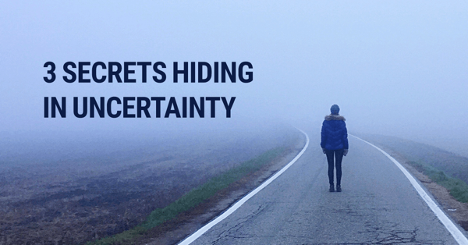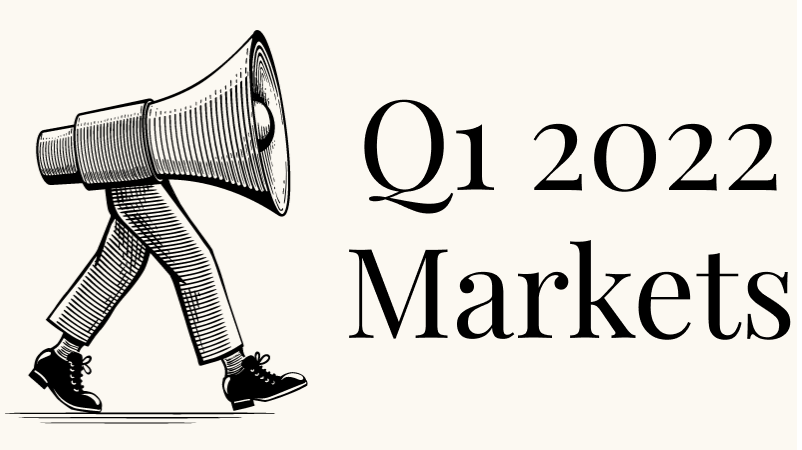Turbulent Times 2022
Recently, we overheard two people talking about the NBA playoffs, which are currently underway. While praising their favorite team’s defensive performance, one of them said something that stuck with us:
“Defense wins championships.”
What a great line! Defense wins championships. The reason this stuck with us is because we’ve been thinking about defense while studying the markets recently. As you probably know, market volatility has been persistent since the middle of January. The S&P 500 has moved in and out of correction territory for the past two months, and the NASDAQ is technically in a bear market. (Quick reminder: A “correction” is defined as a drop of 10% or more from a recent peak, while a “bear market” is a drop of 20% or more.)
As you can imagine, this sustained volatility has a lot of investors concerned for the future. And make no mistake: it’s clear that we are living in turbulent times right now. Some analysts are warning of a potential bear market across the entire stock market; some economists, meanwhile, are even forecasting the possibility of a new recession.1 (Though it’s worth noting this prediction does not seem to be the prevailing one among most economists.)
No one enjoys investing during times like these. But as your financial advisors, we decided to write this letter to assure you that we have a major advantage: We don’t have to suffer from turbulent times. Because we have the ability to play defense with your portfolio.
And defense wins championships.
Let us explain what we mean by quickly recapping why the markets are so volatile. The various reasons are all interconnected, so we can untangle the knot of events fairly easily.
On Monday, April 25, health authorities in Beijing, China, rushed around the city to conduct as many COVID-19 tests as they possibly could. By the end of the day, they had tested almost 3.7 million people.2 Their goal? Identify and quarantine every infected person in the vicinity – so they could avoid the city-wide lockdown that nearby Shanghai has been dealing with for the past four weeks.
The reason this matters is because the world depends on China for a lot of things: Foodstuffs, rare earth metals, computer chips, cars, steel, plastics, etc. The worry is that if China goes on lockdown again, production on all these items will plummet. That would throw a major wrench into global supply chains, which are still – still – struggling to recover from the pandemic.
This is something the world can ill-afford at the moment, especially given the ongoing war in Ukraine. Much of the world depends on both these countries for the goods they need. Wheat and neon gas from Ukraine, for example. Oil and natural gas from Russia. Thanks to this conflict, and due to the sanctions imposed on Russia as a result of it, it’s now not only more expensive to buy certain items. It’s more important to ship them, too.
All these supply chain issues, of course, have contributed to the rampant inflation we’ve seen this year. For example, take something as simple as chicken eggs. Russia exports a huge percentage of the components that go into agricultural fertilizer. When it becomes more expensive for farmers to buy fertilizer, the price of corn goes up. When the price of corn goes up, the price of chicken feed goes up. When the price of chicken feed goes up, the price of raising chickens goes up. That leads to higher-priced eggs, which is further compounded by higher oil prices making it more expensive to ship those eggs to the market and…well, you get the point.
Understanding how the world’s issues, like COVID and war, contributes to supply chain problems makes it easier to see how they also contribute to inflation. And what does inflation have to do with the stock market? Simple: Inflation doesn’t just affect consumers. It affects companies, too. During periods of high inflation, it becomes more and more costly for companies to produce the products they sell. They can – and usually do – raise their own prices to compensate, but this can backfire if it leads consumers to go elsewhere. Either way, the company’s profit margin suffers – which means they return less value to shareholders. Shareholders, in response, then start selling their stock, driving the price down. These are the reasons we’ve seen such sustained volatility in the markets – and why that volatility will likely continue for some time.
These are indeed turbulent times we live in. But here’s the good news. If you look closely, nothing we’ve just explained to you is new, is it? We’ve been dealing with COVID since 2020; with inflation since 2021. In the last two years, we’ve lived through both a bear market and a recession and come out on the other side. We’ve been reading about supply chain issues for months; trade issues with China for years. The sources of today’s volatility are largely the same as yesterday’s.
Which means we know exactly how to deal with it.
As you know, when COVID first hit, we immediately moved to “play defense” with your portfolio. We accepted that growing wasn’t the objective anymore – it was preserving capital. Over the years, we’ve honed our tactics to be able to move to defense whenever the situation demands it. Our team will continue to monitor the situation, but we’re prepared for the possibility of a bear market. Would we rather always stay on offense, seeking to find new opportunities to grow? Of course. But sometimes, the best way to move forward is to keep yourself from moving backwards. Sometimes, avoiding market pain is the best possible gain. Due to our use of technical analysis, and the systematic rules we have in place that let us know when it’s time to buy and when it’s time to sell, defense will be our objective whenever conditions warrant it.
1 “A major recession is coming, Deutsche Bank warns,” CNN Business, https://clicktime.cloud.postoffice.net/clicktime.php?U=https%3A%2F%2Fwww.cnn.com%2F2022%2F04%2F26%2Feconomy%2Finflation-recession-economy-deutsche-bank%2Findex.html&E=maryellen%40mmwealth.com&X=XID257ADbqfQ0600Xd3&T=MMWL&HV=U,E,X,T&H=8081c2db199c4424978bc13342bb584b0eaec739
2 “Beijing Orders Citywide Covid-19 Testing,” The Wall Street Journal, https://clicktime.cloud.postoffice.net/clicktime.php?U=https%3A%2F%2Fwww.wsj.com%2Farticles%2Fbeijing-braces-for-omicron-wave-with-hoarding-and-testing-11650866581&E=maryellen%40mmwealth.com&X=XID257ADbqfQ0600Xd3&T=MMWL&HV=U,E,X,T&H=a81b7794ae33406bc76baf938642e9b857fd38b4



